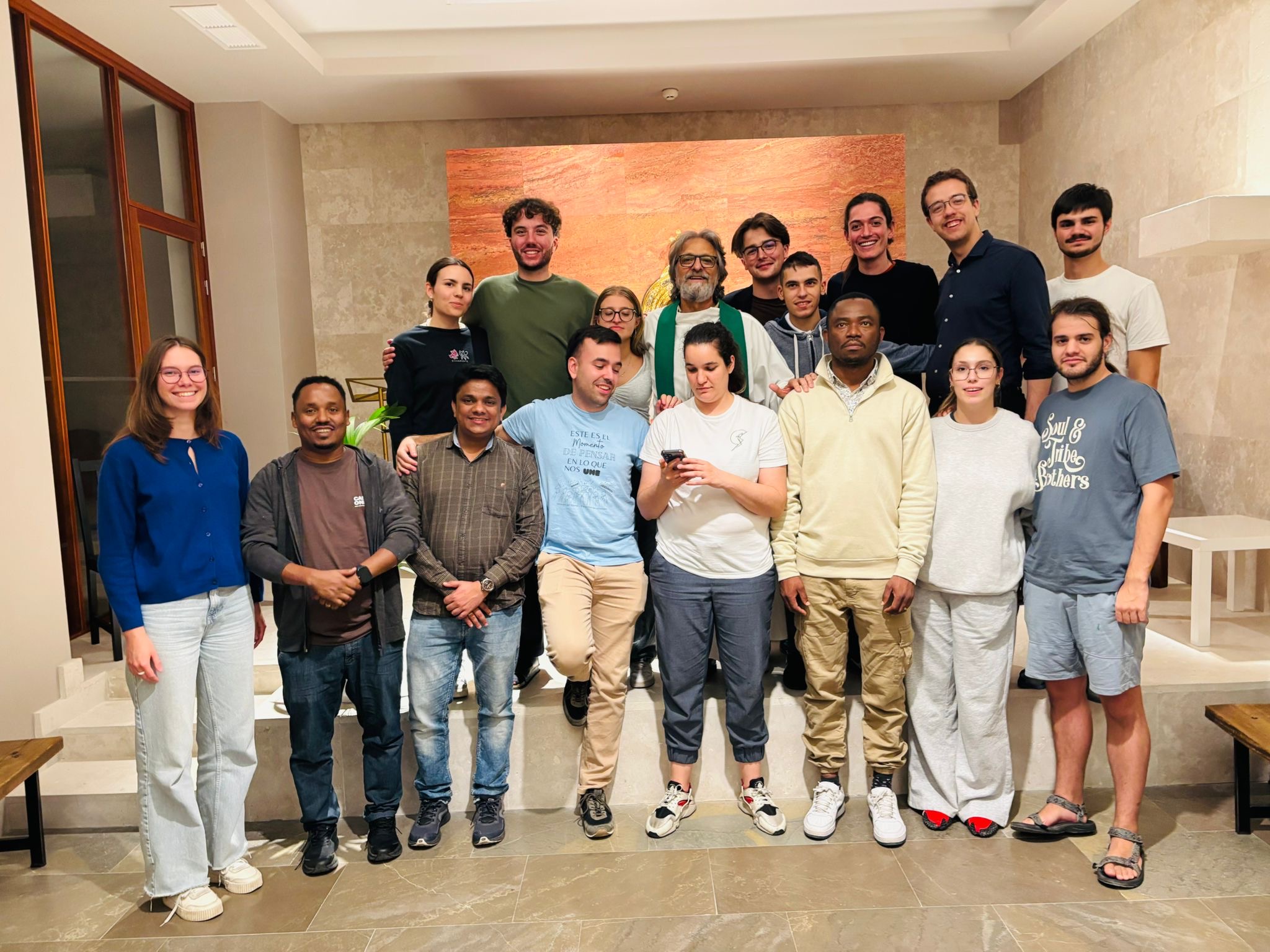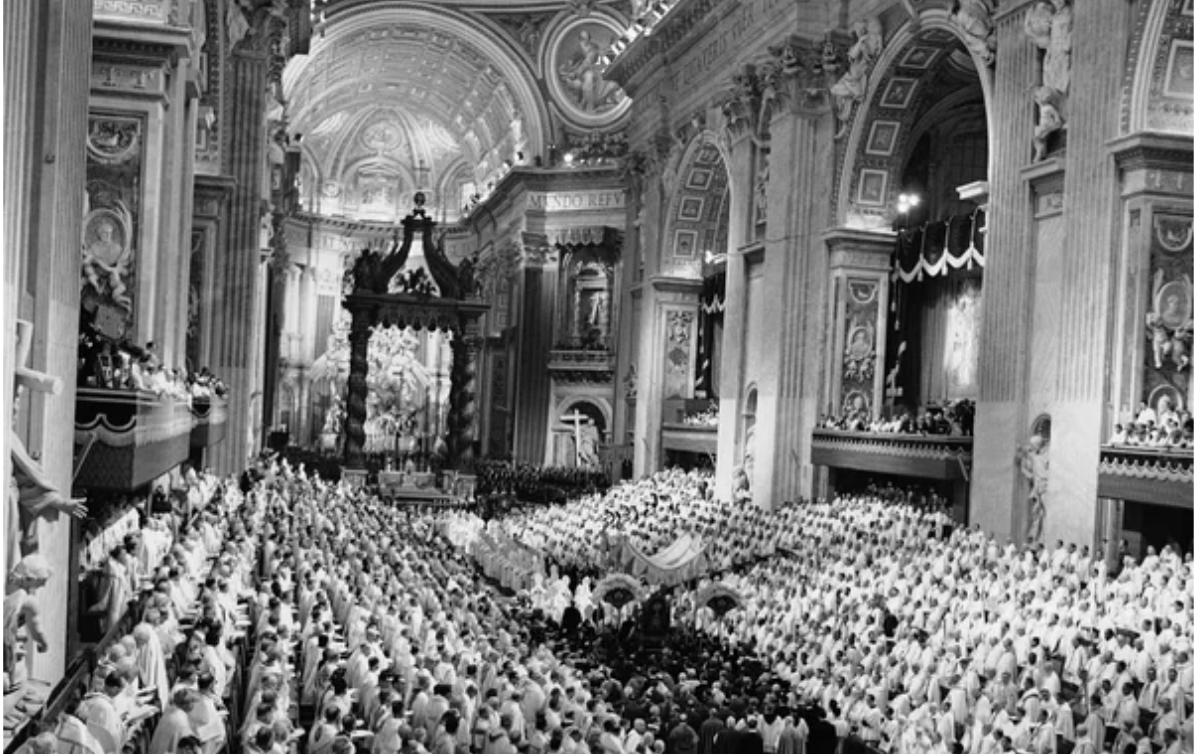
On 9 August 2025, the International Young Catholic Students – Young Catholic Students (IYCS–JECI), in collaboration with the Australian Cardijn Institute, hosted an insightful session as part of its ongoing webinar series “Walking the Path of See, Judge, and Act.” The session was dedicated to the theme “Vatican II and Our Movement – A Journey of Renewal and Mission.”
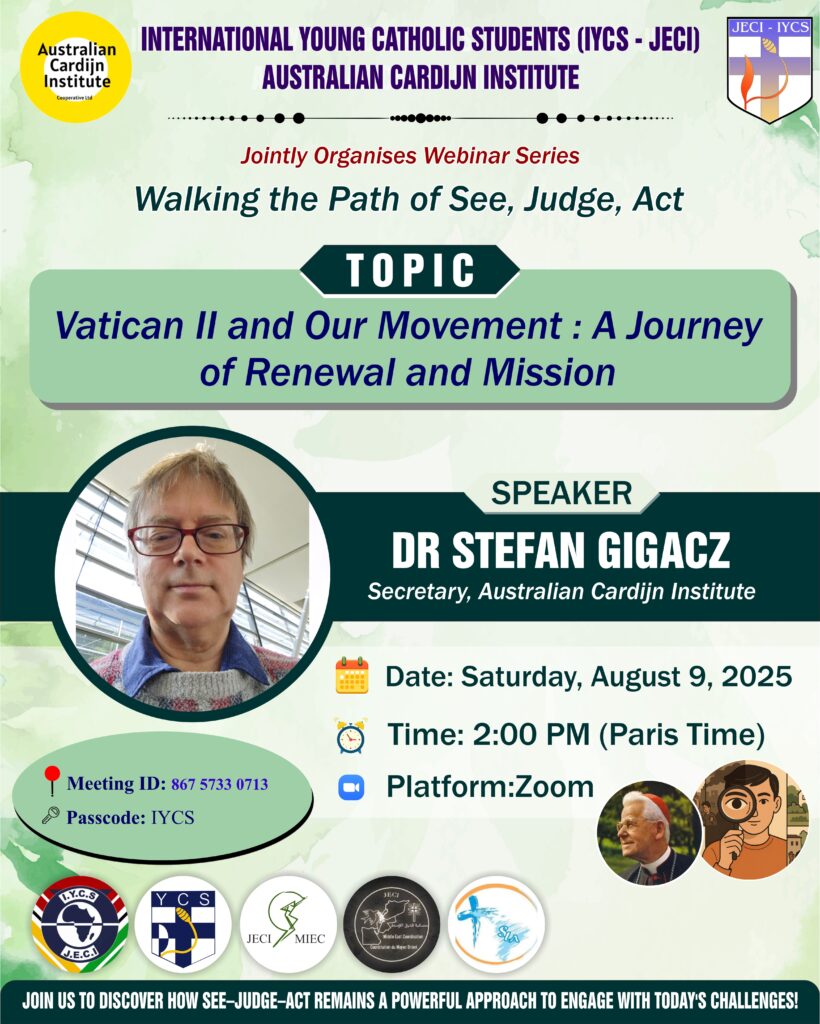
The event began with a warm welcome from Roshan Melwyn Lobo, Secretary General of IYCS, who greeted participants from around the world and introduced the guest speaker, Dr. Stefan Gigacz, a renowned scholar and practitioner in the Catholic action tradition. Secretary General Mr Roshan highlighted the enduring relevance of Vatican II in shaping Catholic lay movements and emphasized its close connection to the See-Judge-Act methodology, the cornerstone of the webinar series. The opening prayer was led by Fr. Kurt Zion Bala from Myanmar, setting a reflective tone for the session.
Dr. Stefan Gigacz presented a rich historical overview of Vatican II, placing it within the context of the major socio-political upheavals of the 19th and 20th centuries, namely, the Democratic and Industrial Revolutions. He explained how these revolutions transformed the relationship between the Church and society. Initially, the Church responded through charitable activities such as the work of the Society of St Vincent de Paul, educational programs, and healthcare initiatives. However, these efforts did not bring about systemic change. The 20th century saw the emergence of a more transformative approach through Catholic Action, particularly via the specialised lay movements such as the Young Christian Workers (YCW), Young Christian Students (YCS), Jeunesse Agricole Catholique (JAC), and Jeunesse Universitaire Catholique (JUC). These movements aimed at societal renewal, inspired by Gospel values.
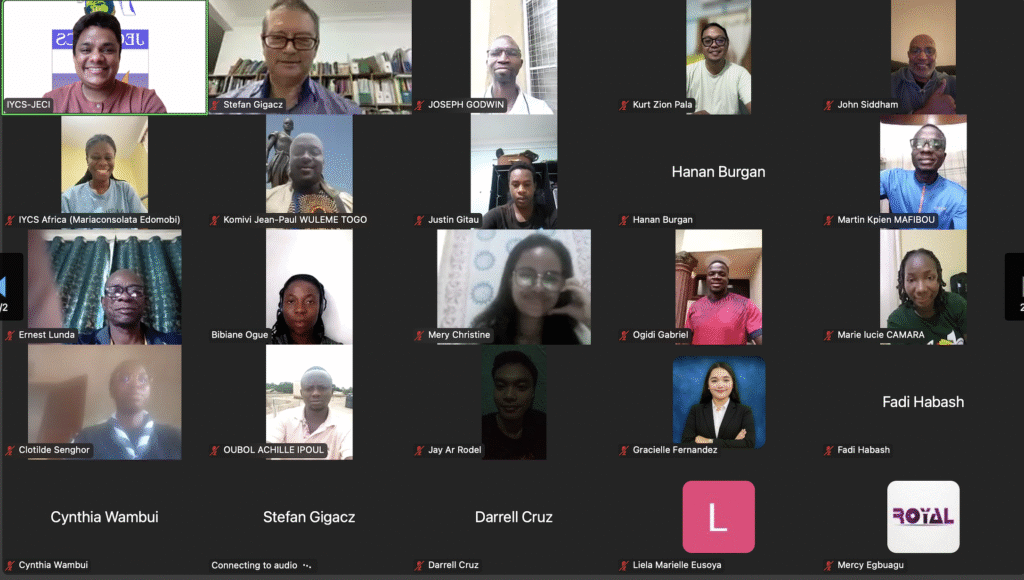
Dr. Stefan emphasized the significant presence and influence of these Catholic Action movements during the Second Vatican Council. Approximately 10% of the 2,500 bishops attending the Council had backgrounds in these movements. Key theologians like Yves Congar, Gerard Philips, and Pierre Haubtmann also contributed to the Council’s work. The Council’s endorsement and formal institutionalization of the See-Judge-Act method were particularly notable, especially in the pastoral constitution Gaudium et Spes, which called laypeople to sanctify the secular world through their daily lives and work. The creation of the Commission on Lay Apostolate and Media, an initiative of Pope John XXIII and the involvement of lay auditors in drafting essential documents marked important milestones.
Further, Dr. Stefan explored Vatican II’s teachings on the laity, referencing Lumen Gentium (§31, §33) and Apostolicam Actuositatem, which underscored the crucial role of the lay apostolate in the Church’s mission. He pointed out that Gaudium et Spes itself is structured on the See-Judge-Act framework, applying it to family, culture, social life, politics, and peace.
Addressing contemporary challenges, Dr. Stefan observed that many Vatican II recommendations remain only partially fulfilled. He encouraged the application of the Council’s vision to urgent issues such as climate change, drawing inspiration from Pope Francis’s encyclical Laudato Si’. Emphasising the need to recover the youth identity of Catholic movements, he highlighted the importance of engaging young people in relevant issues and forming new animators, including catechists, parish workers, and youth ministers, especially in regions where there is a scarcity of young priests.
The presentation also discussed the formation of priests and seminarians. Both Dr. Stefan and Fr. Kurt advocated integrating Catholic Social Teaching and the Cardijn method into seminary curricula. The session concluded with a vibrant interactive discussion. Participants shared reflections on engaging the laity across diverse cultural contexts, the transformative potential of small group actions, strategies for reconnecting disengaged youth, and the challenge of balancing the inward focus of synodality with Vatican II’s call for an outward mission.
In closing remarks, Ms. Maria Consolata Chinesa Edombi, IYCS Africa Coordinator, expressed heartfelt thanks to Dr. Stefan, the participants, and partner organizations. She urged attendees to actively promote forthcoming webinars and continue their commitment to the movement’s mission. The webinar ended with a prayer led by Fr. Kurt Zion Bala, followed by a group photo commemorating the event.
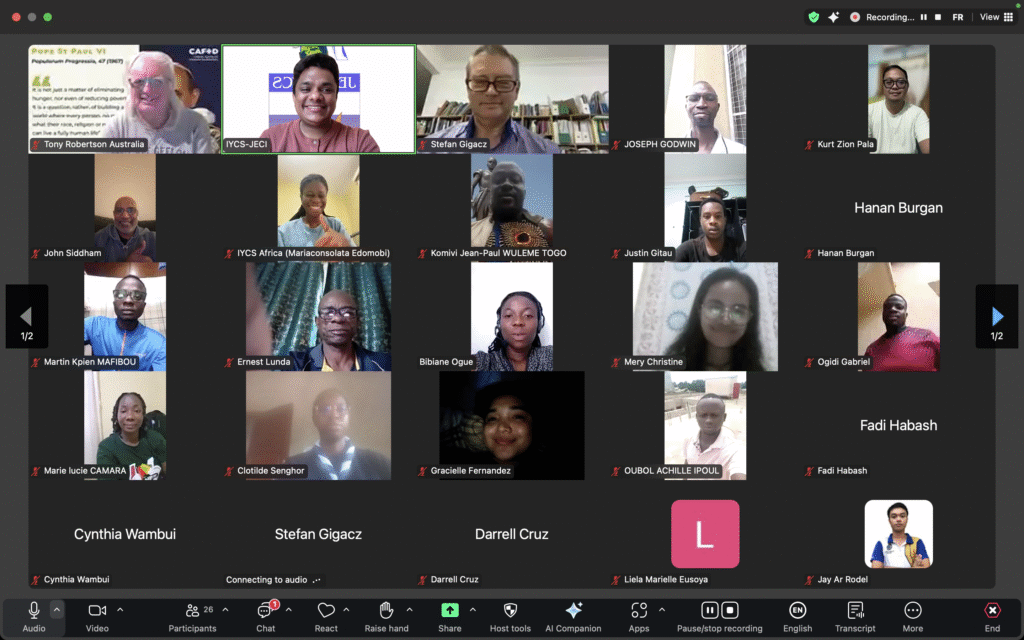
Report by, Roshan Melwyn Lobo, Secretary General IYCS-JECI





